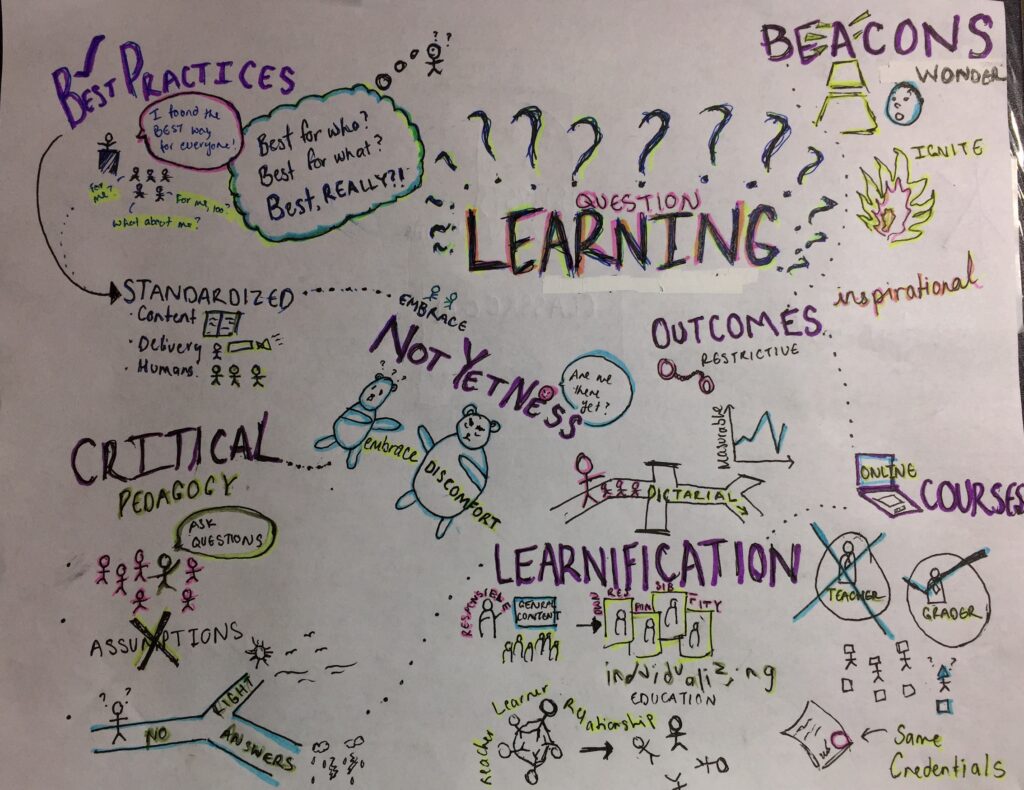After listening to the podcast by Chris Friend and Amy Collier I came up with a sketchnote to summarize some of the important concepts highlighted in the show. This was my first time listening to a podcast and it was interesting to see how formal ideas were presented in an informal way.
One of the concepts that Friend and Collier discussed was the idea of ‘Best Practices’. Best practices are created by someone else and said to be the best idea for everyone in any situation. We must question who they are best for and what they really mean. Best Practices are something that I have generally taken at face value, I hadn’t thought about what negative repercussions they might hold. Instead of ‘Best Practices’ I believe we should have practices in place that cater to individuals and their needs. Often times when something is best for a majority, the minority suffers the most. In my own teaching I want to make sure that the best practices I have in place are ones individualized to the students I’m teaching.
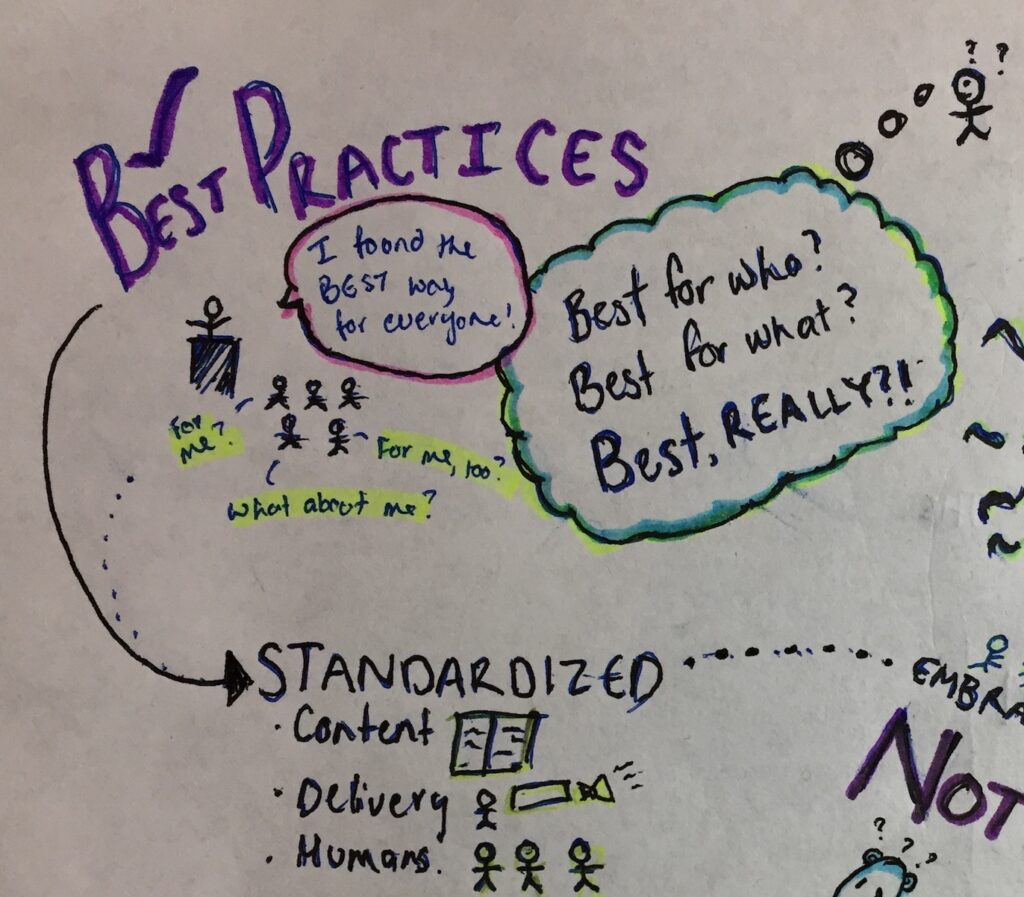
Another idea that was discussed on the podcast was that of “Notyetness”, embracing the discomfort of not knowing and playing with an idea without quite getting it yet. Noyetness is so important to a critical pedagogy because it takes away the burden of having the right answer, instead it embraces the process to the answer and showcases the creativity in finding the solution. I often times ask myself when working on something, “How can I do this the right way?” and then proceed to stress myself out thinking about all the wrong ways I could be doing it. Embracing notyetness means to embrace that unknown factor of learning. This idea actually reminded me of a concept I learned in another class about flow, it emphasized how you can achieve the most optimal flow when completing work if you have a balance between challenge and skill. Notyetness seems to be a part of that process for me, you can only achieve flow if you are working towards something that challenges you, and something that challenges you shouldn’t be something to which you already have a solution.
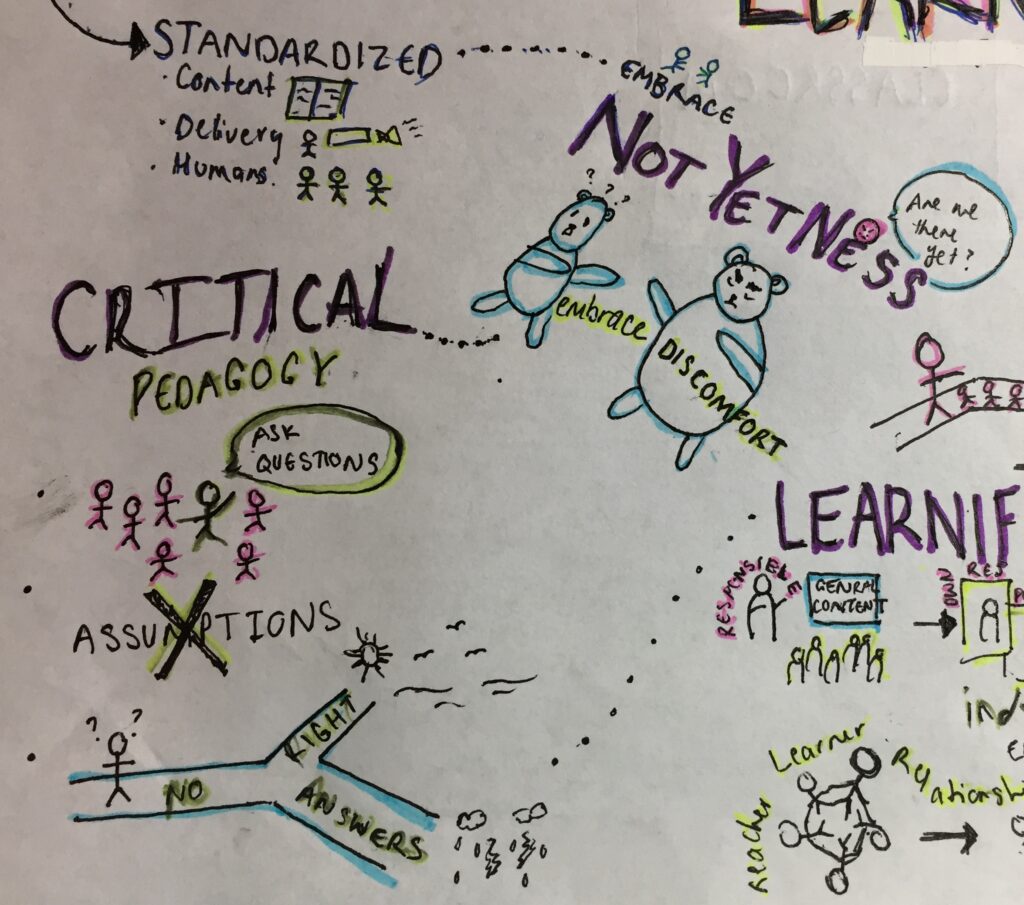
Collier also touches on the idea of “Learnification” which is essentially individualizing education so the responsibility falls on the learner rather than the community. This student interest based learning was not something I had ever been introduced to before but initially hearing about the concept, it seemed intriguing to me. I liked the idea of students wanting to learn whatever they wanted to learn, this personalizes learning and sparks a passion for it as well. Instead of just following a set curriculum that might not meet the interests of some students, why not introduce teaching as a way that touches everyone? Throughout the podcast I also learned that this ideology is quite romanticized and takes away from the student/teacher relationship. Though I wish to personalize learning for my students, I also believe that a part of teaching is maintaining a relationship with your students where there is trust, respect, and consideration. Classrooms are meant to be communal places of learning where we interact and work with one another, but by individualizing education it merely becomes a self process and aspects of collaboration are lost. When I think about my own learning experiences, the best ones have been where there was room for self growth and discovery as well as ways to work with one another in order to achieve the best result.
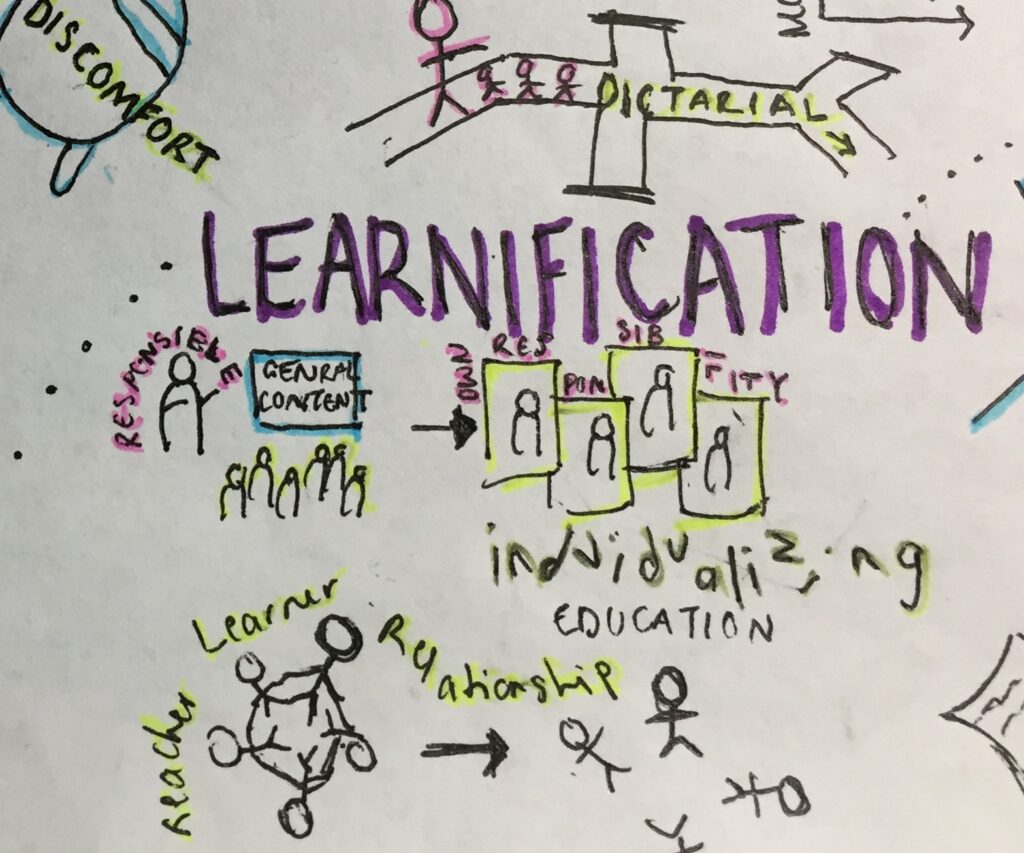
When we become so engrossed by these ‘Best Practices’ and forget to work through ‘Notyetness’ we can become obsessed with the outcome. Outcomes provide a way to derisk learning; when you set measurable outcomes for what students are supposed to know, you take away from the opportunity to measure students on their own individual learning, growth, and understanding. Whenever I start an assignment of any sort, my first step is to always look at the rubric and outlines and see exactly what is asked of me. In my own placement experiences I’ve found that many students do the same and it becomes a way to achieve the best mark rather than forming an interest or understanding. Instead of Outcomes, Collier thinks that we should have Beacons. These Beacons can be big questions that students ask themselves by the end of their learning instead of reductive and incremental outcomes.
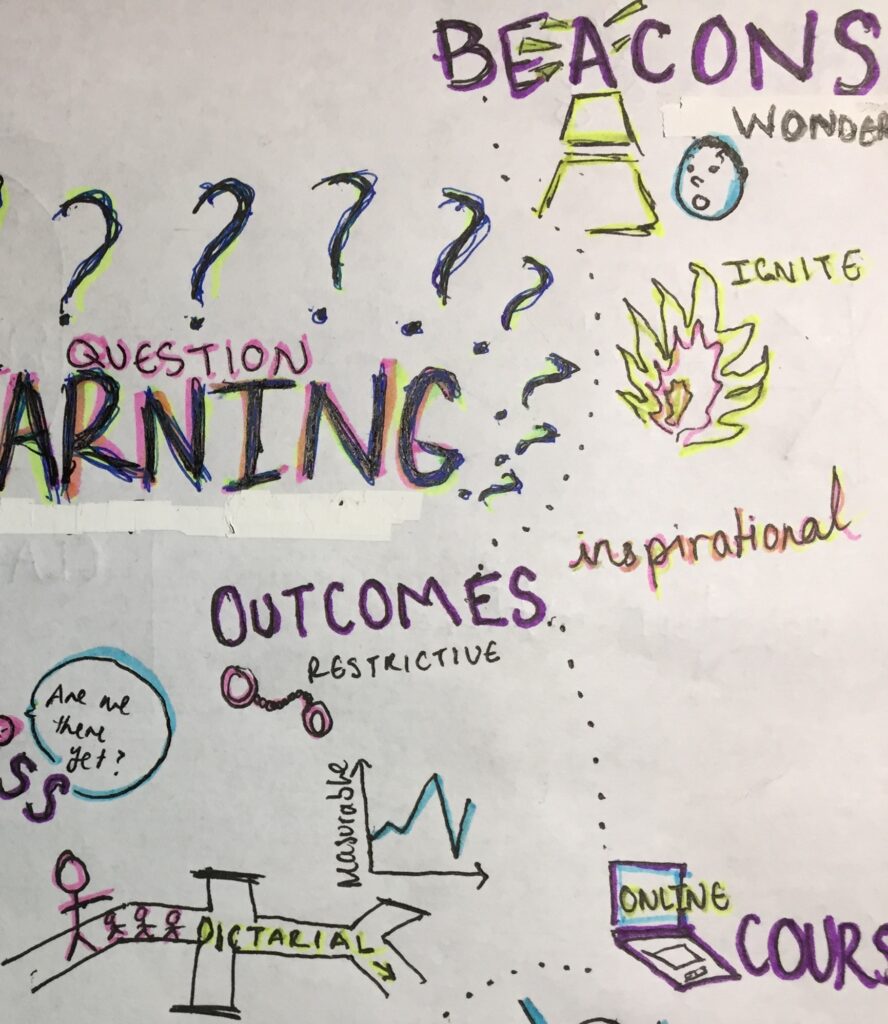
Overall, the points that Collier and Friend made in the podcast were those that I agreed with. It made me question certain ideals we have for learning and what they really mean and I believe it is this questioning that leads to better teaching. I chose to present the information in a sketchnote to challenge myself. I initially wanted to do the Twitter essay because I have an easier time writing words than drawing pictures but this assignment provided me with the opportunity to step out of my comfort zone. I struggled immensely creating the sketchnote and often wanted to give up and write the Twitter essay but I believe that the challenge helped me grow as an educator and really helped me to see how different forms of showing information can be helpful to students and for understanding. #UWinDig2020
